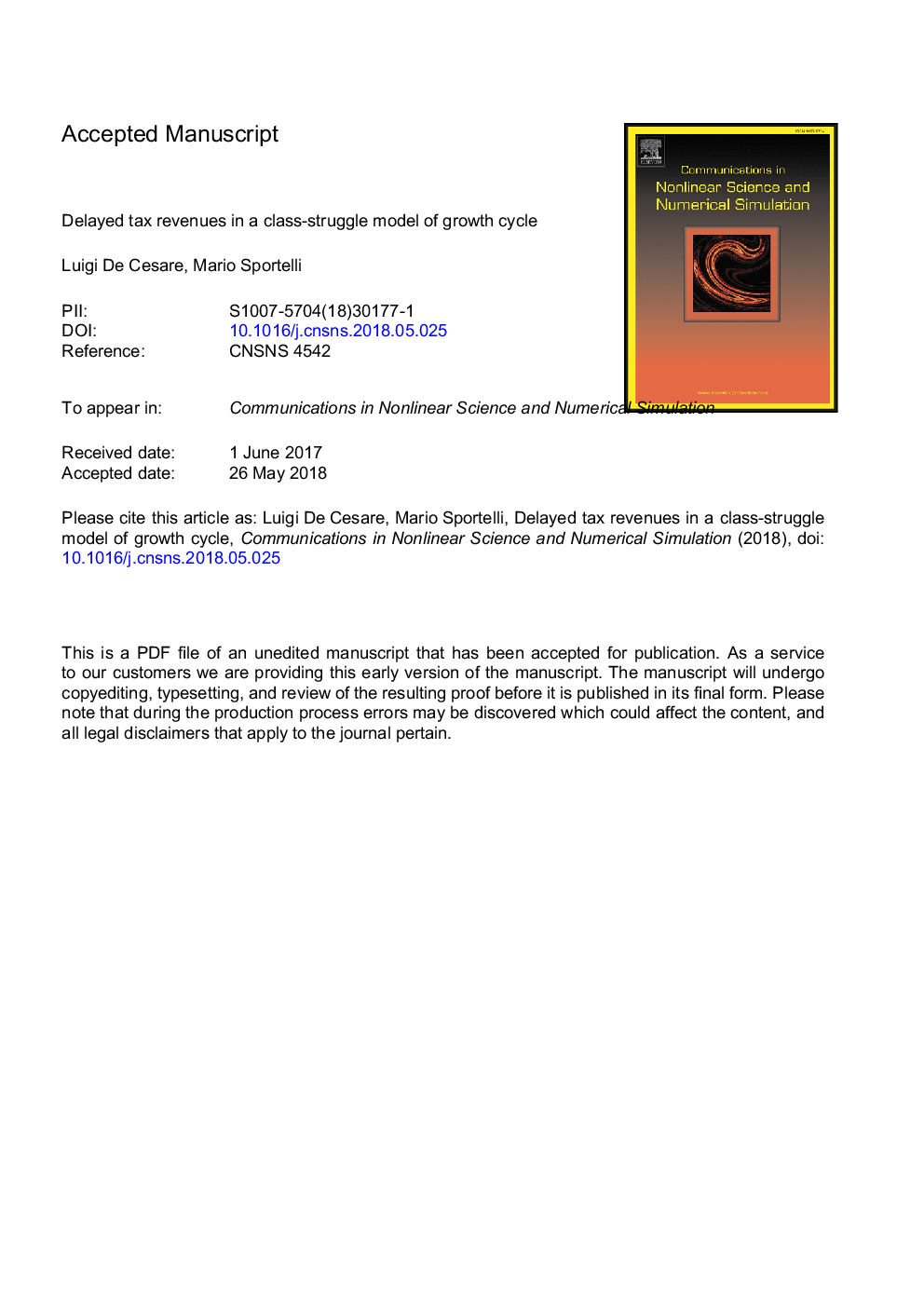| Article ID | Journal | Published Year | Pages | File Type |
|---|---|---|---|---|
| 7154474 | Communications in Nonlinear Science and Numerical Simulation | 2018 | 32 Pages |
Abstract
In this paper, we investigate the impact of delayed tax revenues on the outcomes of fiscal policy. The analytical framework is the Goodwin growth cycle model, which is founded on the Volterra predator-prey equations. We study the dynamic behavior of the system analytically proving the existence of Hopf bifurcations, which may be supercritical and subcritical. In the numerical simulations, which follows the qualitative analysis, it is shown that, given the degree of competition in the markets, fiscal policy purposes may become consistent with their real outcomes only if policy makers are able to control the delay in the structure of the tax system. Nevertheless, there are in the system elements out of the control of the policy makers. These elements imply the possibility to make partially ineffectual the stabilization policy, because of the risk to overcome the minimum public expenditure able to stabilize the system.
Related Topics
Physical Sciences and Engineering
Engineering
Mechanical Engineering
Authors
Luigi De Cesare, Mario Sportelli,
